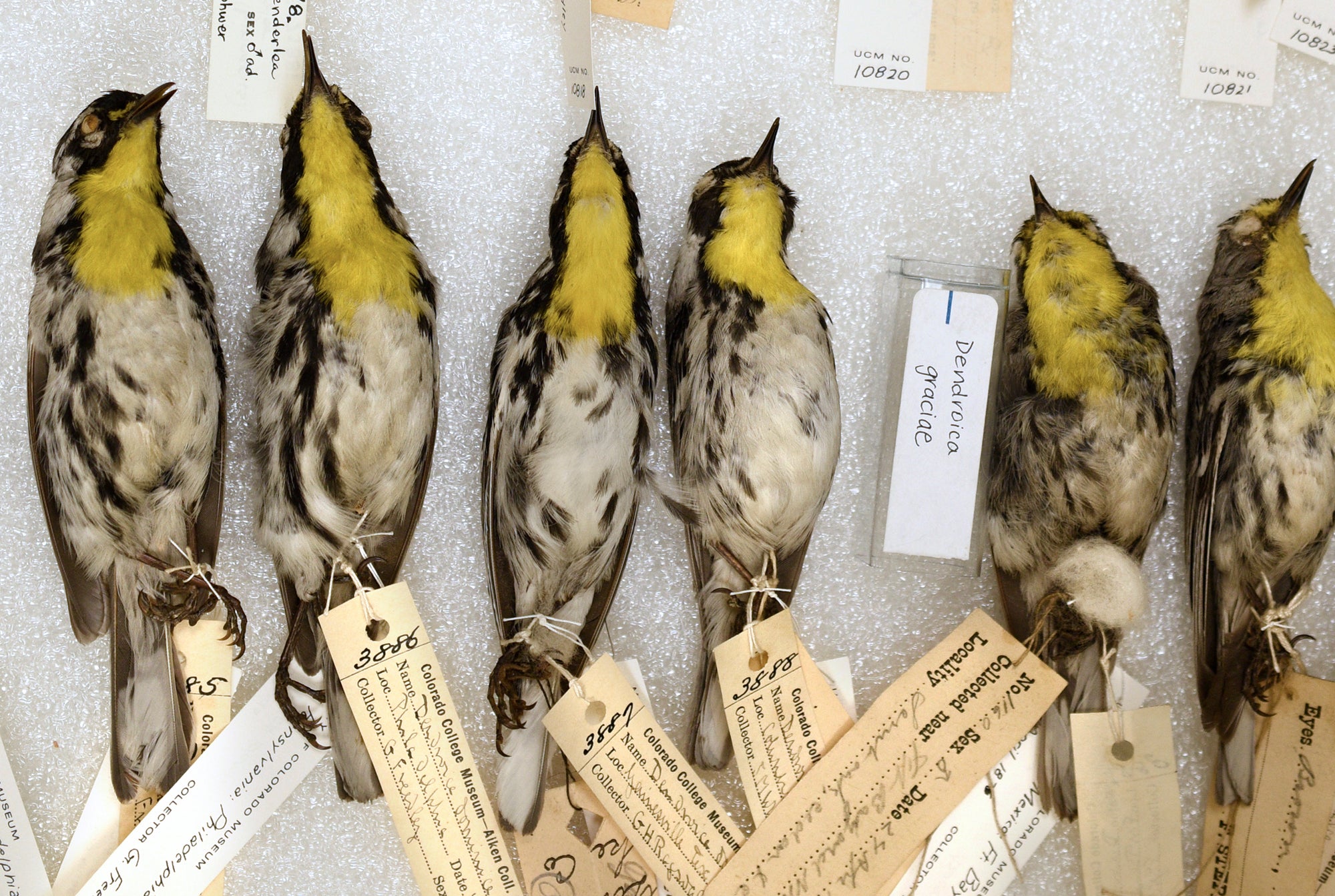Donations
The UCM Vertebrate Collections welcomes specimen donations of mammals, birds, reptiles, amphibians, fishes, and related materials (such as images, slides, field notes, sound recordings and archives). Acceptance of a donation is at the discretion of the UCM Vertebrate Curator and Collection Manager.
-
Found a dead animal carcass? See “Salvaged Specimens” instructions below.
-
Interested in donating materials? Please contact Emily Braker. All donations must be accompanied with permits or documentation confirming that the material was obtained legally. In cases where the donation consists of older material that lacks such documentation, the Collection Manager will work with the U.S. Fish and Wildlife Service to assess the legality of acquiring materials of unknown provenance. In such cases, the donor must submit a letter to the Museum at the time of the donation that indicates the nature and source of material and explains the reason for lack of permit documentation.
-
Monetary Donations. Donations for collection improvements are most welcome! Contribute a secure, tax-deductable credit card donation to the Mammal Collection Storage Cabinets Gift Fund. Please contact Emily Braker for gifts via check.
Salvaged Specimens
Animals are found dead in a variety of circumstances that range from window strikes, road kills, cat and dog kills, to death by disease. Fortunately, such animals can find “new life” within the cabinets of natural history collections. Salvaged specimens make up an important part of the holdings of museums and are integral to expanding research collections by obtaining species from a wide variety of locations. UCM welcomes donations of any wild vertebrate species found in the state of Colorado (excluding eagles and threatened and endangered species), especially those that are fairly fresh and in reasonably good condition with associated locality data. Even decomposed or damaged specimens of rare species are wanted, as they are of value as records and may be saved as partial specimens. In a time of unprecedented habitat destruction and biodiversity loss, museums play a critical role in assembling specimen collections to be used in research that often feeds directly back into wildlife and habitat protection policies.
Wildlife is regulated in Colorado by the Colorado Division of Wildlife (CDOW) and the U.S. Fish and Wildlife Service (USFWS). While regulations vary by species, it is generally illegal to live-trap, collect, or salvage wildlife without state and federal permits. UCM maintains salvage permits that allow for the donation of dead wildlife to the museum for scientific and educational purposes. Our permits are renewed annually, and salvaged species are reported each year to CDOW and USFWS for monitoring of specimens deposited at the museum.
Donated carcasses are made into research specimens used by scientists from a variety of disciplines as well as for student study in courses such as Mammalogy, Fish Biology, Ornithology, and Herpetology. Your specimen can be of use to researchers and the public for hundreds of years.
If you find a dead animal and wish to donate the carcass to UCM:
-
Place the dead animal in a baggie (ideally Ziplock or a sturdy plastic bag, double-bagged and sealed tightly to prevent freezer burn). For birds, we recommend making a paper cone out of white paper or brown paper bag and placing the specimen inside bill-first before putting it in a bag to keep the feathers properly arranged.
-
Record the date and a detailed description or address of where the animal was found on a slip of paper (e.g., “Boulder County, 30 feet east of intersection Hwy 119 and Hwy 287”). Use GPS coordinates if available. Include your name and contact information. Place the data slip between bag layers to protect the information from direct contact with the specimen.
-
Place the bagged animal in a freezer until you are able to coordinate drop-off at UCM.Contact Emily Braker to make arrangements for donating a salvaged carcass.
Note: Any person who handles a dead animal should be aware of potential health hazards. Some birds carry West Nile virus (notably crows and jays), and mammals may carry Plague, Parvo virus, Hanta virus, or Rabies. Use gloves if possible, and always be sure to wash your hands thoroughly after handling dead animals. Watch out for fleas, ticks, or other parasites.

